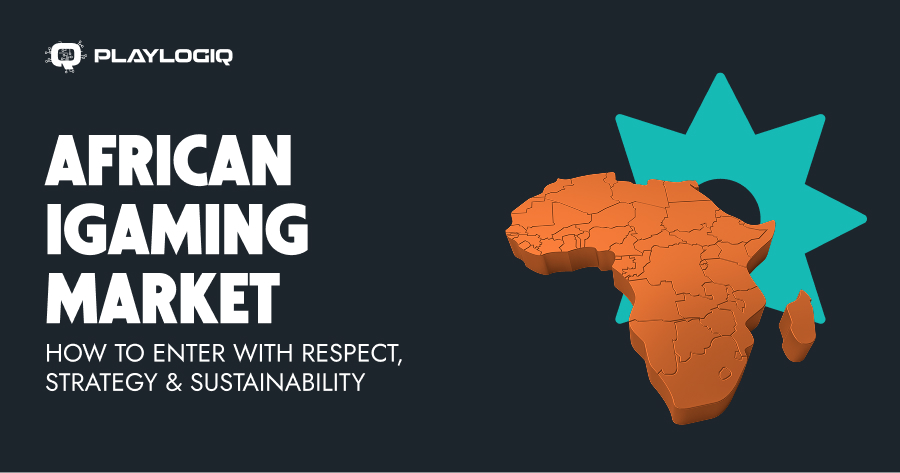In 2024, the global gambling industry is facing increasingly stringent compliance challenges, as regulations evolve to address the growing complexities of the digital landscape. For operators, adhering to standards like Anti-Money Laundering (AML) protocols, data protection regulations, and responsible gambling initiatives is more crucial than ever. Ensuring compliance while maintaining a secure, transparent, and regulated gaming environment is essential to gaining and maintaining player trust.
As the gambling market expands worldwide, particularly in emerging regions such as Africa, operators must stay agile and proactive in responding to both local and international regulatory changes. The African market, for example, presents immense potential but comes with its own set of regulatory hurdles, such as heightened Know Your Customer (KYC) requirements, data protection laws, and AML compliance.
1. Stricter AML Regulations in the Gambling Industry
Globally, the need for stricter Anti-Money Laundering (AML) measures in gambling has never been more apparent. Regulatory authorities are intensifying their focus on how gambling operators prevent illicit activities, such as money laundering, within their platforms. Operators must demonstrate robust measures to detect and report suspicious transactions to ensure they remain compliant with AML laws.
Key AML compliance strategies include:
- Comprehensive player monitoring: Gambling platforms must implement real-time monitoring tools to identify unusual betting patterns or financial activities that may indicate money laundering.
- Automated reporting systems: Efficient reporting systems allow operators to alert authorities promptly of any suspicious activities, mitigating risks and demonstrating regulatory adherence.
- KYC checks: A strong focus on KYC processes ensures that operators verify the identity of their users, reducing the risk of fraud and illicit activity.
Failure to meet these stringent requirements can lead to heavy fines, license revocation, or even legal action. Therefore, for operators, staying ahead of AML requirements is not just a legal obligation—it’s essential for business sustainability.
2. Responsible Gambling: Protecting Players and Ensuring Compliance
As regulatory frameworks tighten, responsible gambling initiatives are becoming a top priority for operators. Governments and gambling authorities worldwide are mandating that operators take active steps to protect vulnerable players and ensure that gambling remains a safe form of entertainment.
Key responsible gambling practices include:
- Self-exclusion tools: Allowing players to voluntarily exclude themselves from gambling for a set period helps prevent problem gambling.
- Deposit limits and loss caps: Setting boundaries on how much players can deposit or lose in a given time period provides a safeguard against compulsive gambling.
- Player behaviour monitoring: Regularly analysing player activity helps operators identify warning signs of gambling addiction early on, enabling timely intervention.
In 2024, operators are increasingly expected to integrate these responsible gambling measures within their platforms and provide resources for players to seek help if needed. This ensures compliance with regulatory bodies and promotes a safer gambling environment.
3. Data Protection and Privacy: A Rising Concern
Data protection has emerged as one of the most significant compliance challenges in the gambling industry, particularly with the introduction of GDPR-like regulations outside Europe. In regions such as Africa, countries like South Africa have introduced laws like the Protection of Personal Information Act (POPIA), which closely mirrors the GDPR’s requirements.
Key data protection measures for gambling operators include:
- Encryption and secure data storage: Operators must ensure that all sensitive customer data is securely stored using advanced encryption technologies.
- User consent protocols: Gathering explicit consent from users before collecting, storing, or using their personal information is crucial for compliance with data protection laws.
- Data breach response: Implementing quick and effective response plans to manage potential data breaches helps limit damage and regulatory penalties.
As data breaches and cyber threats become more prevalent, gambling operators must invest in cutting-edge technology to protect their customers’ personal information and avoid costly breaches. Adopting these data protection measures ensures compliance with regulations like POPIA while boosting customer confidence.
4. Africa’s Booming Online Gambling Market: Compliance Opportunities and Challenges
The African gambling market is experiencing rapid growth, with the industry projected to generate over $1 billion in revenue by 2024. Key countries such as South Africa, Kenya, and Nigeria are leading this expansion, driven by the increasing popularity of online betting and mobile gambling platforms. However, with this growth comes heightened regulatory scrutiny, requiring operators to meet stricter standards to remain compliant.
Know Your Customer (KYC) and AML Compliance
As the online gambling sector grows, African regulators are implementing more rigorous KYC checks and AML measures to combat money laundering and fraud. In particular, regulators are demanding that operators verify player identities thoroughly and monitor transactions for any signs of suspicious activity.
Key compliance requirements in the African market include:
- Enhanced KYC checks: Operators must use automated digital identity verification tools to ensure the accuracy and security of player information.
- AML compliance: Platforms must have built-in mechanisms to monitor for fraudulent behaviour, report suspicious transactions, and prevent illegal money flows.
- Player verification: Secure systems for verifying customer identities help reduce the risk of underage gambling and financial crimes.
Data Protection and Privacy in Africa
In addition to KYC and AML requirements, data protection is becoming a critical challenge in Africa, particularly with the adoption of GDPR-like laws such as South Africa’s POPIA. Operators must ensure that they are protecting customer data in line with these stringent regulations. This includes implementing technologies that securely handle personal information and developing clear data protection policies to safeguard customer privacy.
5. Technological Solutions to Meet Compliance Standards
In 2024, technology plays a crucial role in helping gambling operators meet the growing regulatory demands of the industry. The implementation of innovative technological solutions not only simplifies compliance but also enhances operational efficiency.
Key technological solutions include:
- Automated identity verification: Digital tools streamline KYC processes, ensuring that player verification is accurate and secure while reducing human error.
- AI-driven monitoring systems: AI tools can monitor player behaviour and transactions in real time, quickly identifying patterns that suggest problem gambling or fraudulent activity.
- Blockchain for transparency: Blockchain technology is being explored as a way to create transparent and immutable records, ensuring fairness in gaming and secure financial transactions.
By investing in these advanced solutions, operators can reduce non-compliance risks and stay ahead of evolving regulations while maintaining a smooth and secure player experience.
6. Adapting to Evolving Regulations: Staying Ahead in a Dynamic Market
As regulations evolve, gambling operators must remain agile and proactive to navigate the increasingly complex landscape of compliance. In regions like Africa, where the online betting market is booming, the pressure to comply with both national and international regulatory frameworks is higher than ever.
Flexibility and a commitment to compliance are essential for operators looking to succeed in this dynamic environment. By adopting the latest technology and integrating best practices in responsible gambling, data protection, and AML compliance, operators can thrive in new markets like Africa while maintaining the highest standards of integrity and transparency.
Conclusion
The gambling industry in 2024 faces numerous compliance challenges as global regulations continue to evolve. Operators must adhere to AML standards, responsible gambling initiatives, and data protection laws, while also managing the unique demands of emerging markets like Africa. By investing in cutting-edge technology, adopting strict KYC and AML processes, and committing to responsible gambling, operators can meet these challenges head-on and create a safer, more transparent gambling environment for all players.
FAQs
Also in this category
Subscribe for the latest updates
We post fresh content every week.






